The Critical Role of B Vitamins and Choline in Maintaining Urinary Health
Here's an overview:
-
Introduction to B Vitamins and Their Importance in Overall Health
-
The Critical Role of Vitamin B1 (Thiamine) in Urinary System Function
-
Vitamin B2 (Riboflavin) and Its Impact on Urinary Tract Health
-
Niacin (Vitamin B3) and Urinary Health: What You Need to Know
-
The Importance of Vitamin B5 (Pantothenic Acid) for Kidney Function
-
Vitamin B6 (Pyridoxine): A Vital Component for Bladder Health
-
The Role of Folate (Vitamin B9) in Urinary Health and Disease Prevention
-
Vitamin B12: Its Indispensable Role in Maintaining a Healthy Urinary System
-
Understanding Choline: The Lesser-Known Nutrient Essential for Urinary Health
-
Synergy of B Vitamins and Choline: Combating Urinary Disorders
-
Nutritional Sources of B Vitamins and Choline for Optimal Urinary Health
-
Conclusion: Integrating B Vitamins and Choline into a Healthy Urinary Health Regimen
/
Introduction to B Vitamins and Their Importance in Overall Health

B Vitamins are a collection of essential nutrients that play a pivotal role in maintaining optimal bodily functions. These water-soluble vitamins are vital for various metabolic processes, including energy production, red blood cell formation, and the maintenance of proper brain health. The family of B Vitamins comprises eight distinct vitamins, each with a unique contribution to overall health.
-
Vitamin B1 (Thiamine) aides in the proper function of the nervous system and the flow of electrolytes.
-
Vitamin B2 (Riboflavin) is integral for energy production and cellular growth.
-
Vitamin B3 (Niacin) fosters good cholesterol levels and supports cardiovascular health.
-
Vitamin B5 (Pantothenic acid) is utilized in the synthesis of coenzyme A, essential for fatty acid metabolism.
-
Vitamin B6 (Pyridoxine) is crucial for amino acid metabolism and neurotransmitter synthesis.
-
Vitamin B7 (Biotin) facilitates the health of hair, skin, and nails.
-
Vitamin B9 (Folic acid) is necessary for DNA synthesis and repair.
-
Vitamin B12 (Cobalamin) plays an indispensable role in nerve tissue health and the production of red blood cells.
The role of vitamins in promoting healthy cognitive function cannot be overstated. They are fundamental for brain health and have been linked to reductions in age-related cognitive decline. In the realm of immune support, B Vitamins fortify the body's natural defense mechanisms, enabling the body to effectively combat infections and diseases.
It's no wonder that many seek out multi-vitamin gummies and supplements to ensure they receive these vital nutrients. Products like magic invisible pore makeup primer, with its promise of pores disappearing and face oil control, also tout the inclusion of vitamins A, C, and E for optimum skin health. Moreover, understanding prostatitis and strengthening prostate health with vitamins and supplements is becoming increasingly recognized as an essential aspect of men's health.
Hence, B Vitamins serve as fundamental cornerstones for overall well-being, influencing diverse bodily systems from metabolic cycles to neurological functions and immune resilience.
Understanding Urinary Health: Definitions and Key Functions
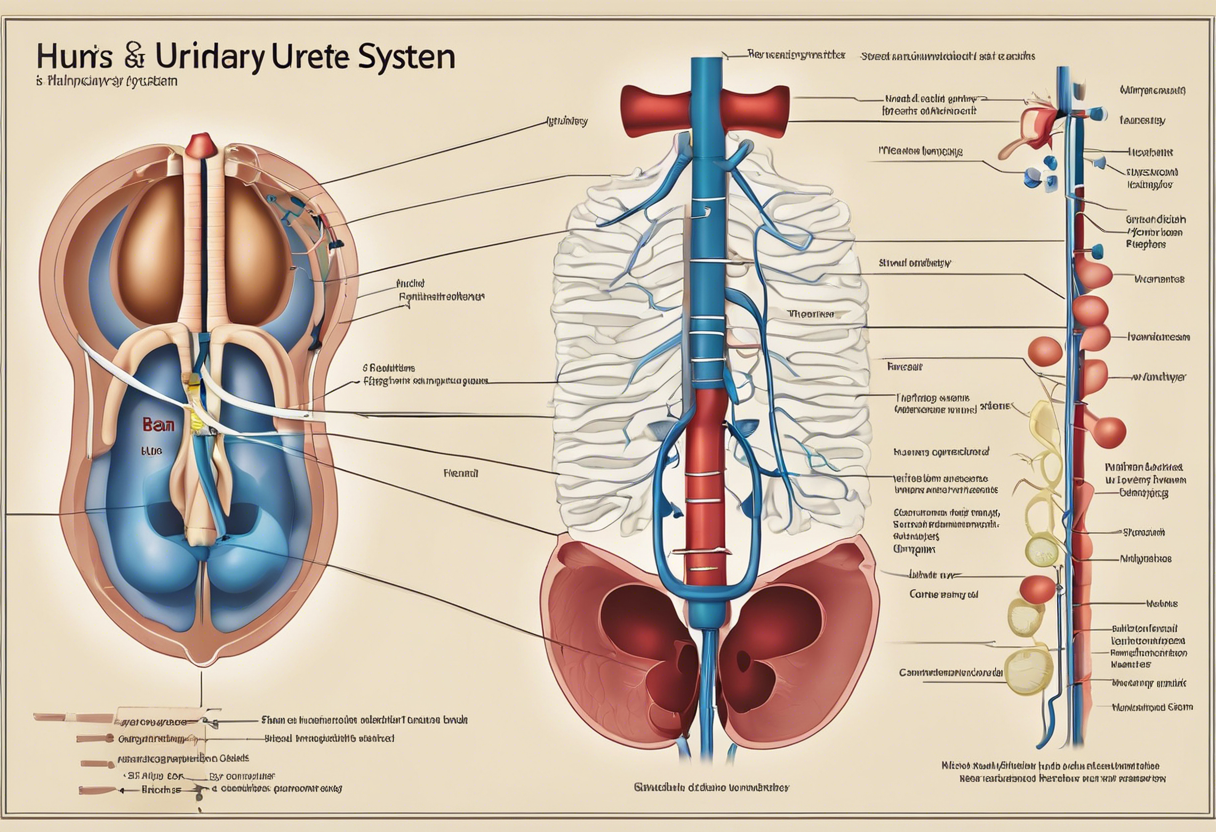
Urinary health is a crucial aspect of overall well-being. It refers to the proper functioning of the kidneys, ureters, bladder, and urethra which constitute the urinary tract. Maintaining a healthy urinary system is vital for the body’s waste elimination, managing fluid balance, and ensuring the proper concentration of electrolytes.
Key functions of the urinary system include:
-
Filtration of Blood: The kidneys filter waste products and excess substances from the blood, which are then excreted as urine.
-
Regulation of Blood Pressure: Kidneys maintain blood pressure by controlling the volume of water that is excreted and by producing the enzyme renin.
-
Electrolyte Balance: Proper functioning ensures balanced levels of electrolytes, such as sodium, potassium, and phosphate, which are essential for many bodily processes.
-
pH Balance: The urinary system helps maintain a stable pH level in the bloodstream by either removing or adjusting the levels of acids and bases.
B vitamins and choline play a significant role in urinary health. These essential nutrients contribute to:
-
Energy Metabolism: Assisting cells in the urinary tract to break down macronutrients and providing them with energy.
-
Nerve Function: B vitamins are important for healthy cognitive function and, by extension, for the nerves controlling urinary organs.
-
Muscle Tone: Adequate levels of B vitamins help maintain muscle tone in the bladder and the urinary tract, which is necessary for controlled urination.
-
Cell Health: Choline and B vitamins, like vitamin A, C, and E found in products such as magic invisible pore makeup primer, support cell integrity and repair, ensuring that the cells lining the urinary tract function optimally.
Additionally, these nutrients can provide immune support, which is essential for preventing infections that can compromise urinary health. Understanding prostatitis and strengthening prostate health with vitamins and supplements is an aspect of urinary health for men. Multi-vitamin gummies often include B vitamins and choline, offering a convenient option for individuals aiming to support their urinary health through nutrition.
The Critical Role of Vitamin B1 (Thiamine) in Urinary System Function
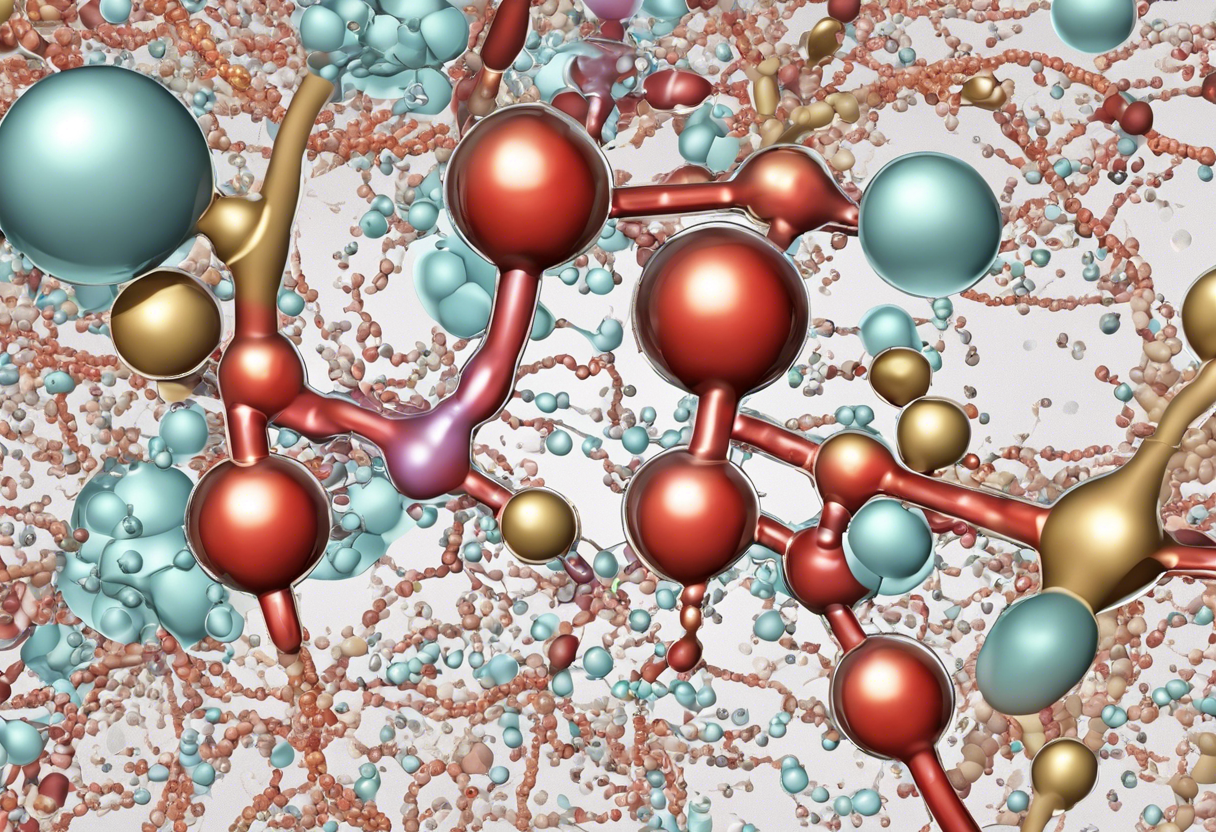
Vitamin B1, also known as thiamine, is an essential nutrient that plays a pivotal role in maintaining urinary health. Thiamine is crucial for the proper functioning of the urinary system, as it supports the nerves that regulate the bladder and kidneys, organs essential for filtering and eliminating waste from the body. In fact, a deficiency in thiamine can lead to complications such as nerve damage and poor muscle control, which can result in bladder dysfunction or urinary retention.
Furthermore, vitamin B1 is involved in the metabolic processes that convert foods into energy, which is vital for the functioning of all body organs, including the urinary system. Energy derived from these metabolic processes is essential for the smooth musculature in the urinary tract that facilitates the flow of urine. Insufficient thiamine levels could compromise these processes, leading to fatigue and weakness of these muscles, affecting normal urinary function.
For individuals focusing on strengthening prostate health, understanding prostatitis involves recognizing the importance of proper nutrition, and vitamin B1 can play a supportive role. Thiamine has been observed to have anti-inflammatory properties, which can help in reducing inflammation associated with conditions like prostatitis.
Additionally, with the increase in the popularity of multi-vitamin gummies and supplements, incorporating thiamine into one's diet has become more convenient. Such supplements can be especially beneficial for supporting overall health as they often contain other nutrients conducive to brain health and immune support, like vitamins A, C, and E.
In terms of skincare, the magic invisible pore makeup primer, which promises pores disappear, typically contains vitamins that may support skin health. Thiamine's antioxidative properties can guard the skin against oxidative stress, thereby potentially aiding in maintaining optimum skin health.
In conclusion, thiamine is indispensable in the smooth operation of the urinary system. It can contribute significantly to not just urinary health, but also cognitive function, immune system strength, and skin health, making it a critical component of daily nutritional intake.
Vitamin B2 (Riboflav])in) and Its Impact on Urinary Tract Health
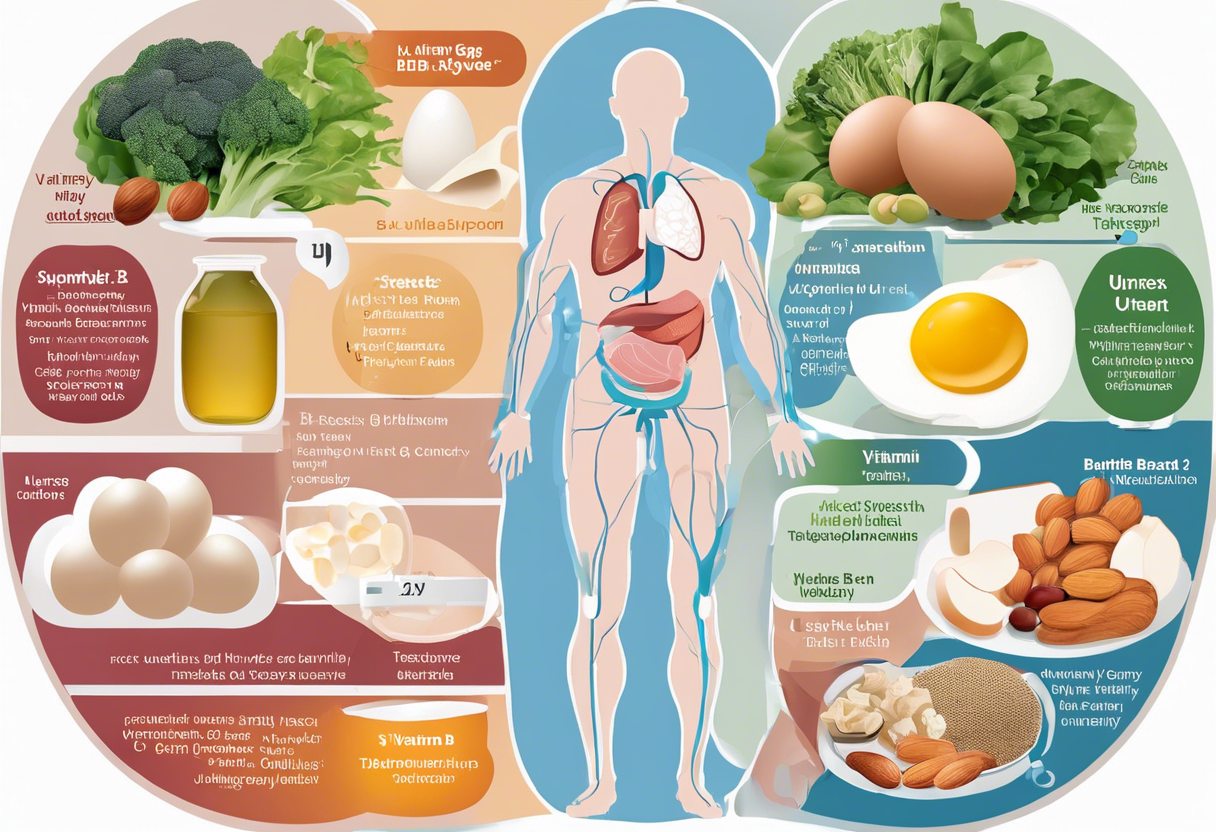
Vitamin B2, commonly known as riboflavin, is a crucial nutrient that plays a significant role in overall health, including the urinary system. It aids in the breakdown of proteins, fats, and carbohydrates, acting as a catalyst in the conversion of nutrients into energy. This energy is essential for maintaining tissue health and repair, which extends to the urinary tract.
The health of the urinary tract is paramount, and vitamin B2 can influence this system in several ways:
-
Antioxidant Properties: Riboflavin helps combat oxidative stress by working as an antioxidant. This capability may contribute to reducing inflammation in the urinary tract, which is beneficial in managing conditions like prostatitis, a common issue affecting men.
-
Mucous Membrane Support: By ensuring the health of mucous membranes, vitamin B2 may help maintain a robust lining in the bladder and urethra, potentially defending against bacterial infections that could lead to urinary tract infections (UTIs).
-
Iron Absorption and Red Blood Cell Formation: Riboflavin is integral in the absorption of iron and the formation of red blood cells. Proper functioning of these processes is vital for preventing anemia, which can lead to a diminished capacity of the blood to carry oxygen, affecting all organs, including the kidney and urinary tract.
Regular intake of vitamin B2 is therefore essential for urinary tract health. While it is possible to obtain riboflavin from various dietary sources such as milk, cheese, leafy vegetables, and almonds, individuals at risk of deficiency might need additional support. This can come from multi-vitamin gummies or supplements designed to offer brain health benefits and immune support. For individuals with specific cosmetic concerns, products like a magic invisible pore makeup primer, aiming to make pores disappear, often contain vitamins A, C, and E but may also have riboflavin due to its skin health advantages.
For those understanding prostatitis and seeking to strengthen prostate health with vitamins and supplements, investigating options that include vitamin B2 and other B vitamins may be beneficial. The consumption of B vitamins is not only about managing a single aspect of health but also about supporting the interconnected systems that keep our bodies working optimally.
Niacin (Vitamin B3) and Urinary Health: What You Need to Know
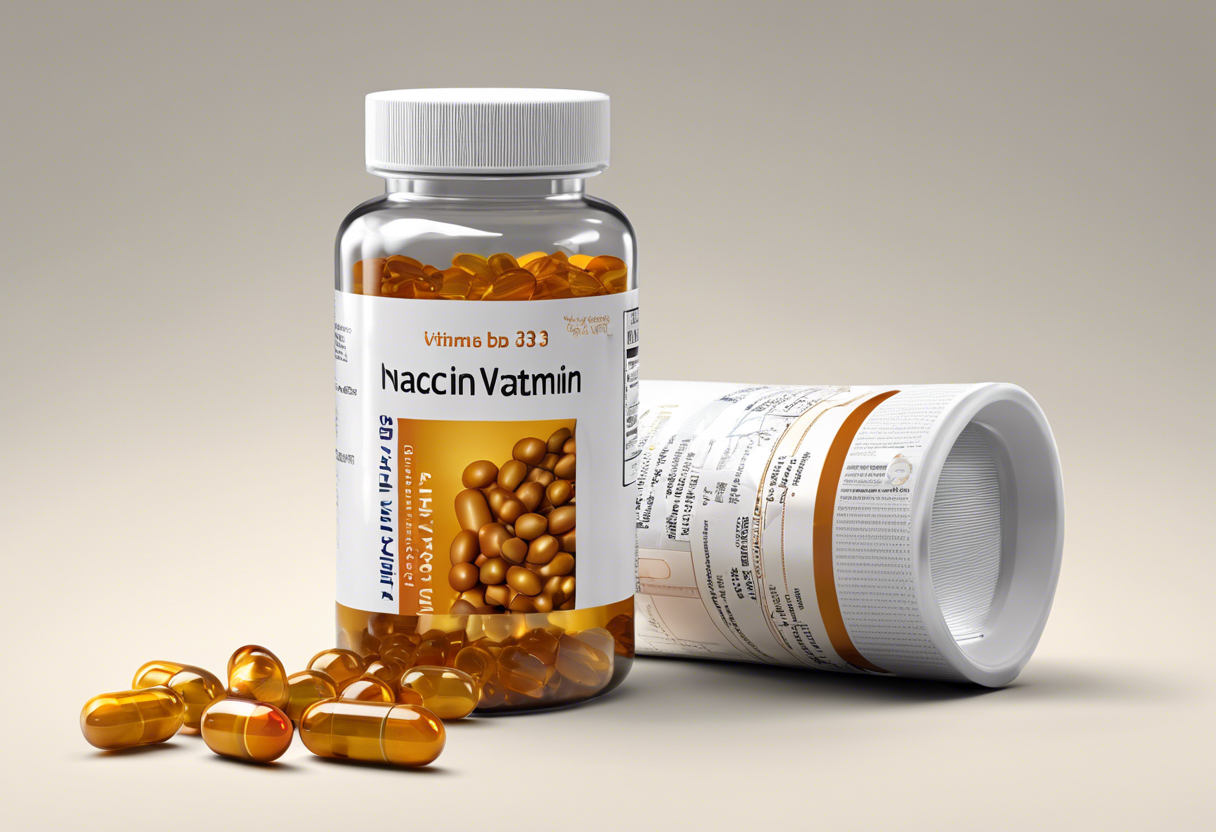
Niacin, commonly known as Vitamin B3, plays a pivotal role in overall health, extending its benefits to the urinary system. Essential to the body's conversion of carbohydrates, fats, and proteins into energy, niacin is also crucial for maintaining healthy skin and nerves. Moreover, its influence profoundly impacts urinary health in several ways.
Firstly, niacin is vital for optimal kidney function, an organ integral to urinary health. The kidneys work tirelessly to filter out waste from the blood, creating urine. Adequate levels of niacin ensure this filtering process runs smoothly, supporting the body's natural detoxification pathways. Apart from kidney function, niacin can aid in bladder health, potentially reducing the risk of urinary tract infections (UTIs).
Furthermore, Vitamin B3 has shown promise in understanding prostatitis and strengthening prostate health with vitamins and supplements. Prostatitis, an inflammation of the prostate gland, can lead to troublesome urinary symptoms. Studies suggest that niacin supplementation might help manage these symptoms, providing men with a non-invasive option to support prostate health.
Amid the plethora of products aimed at enhancing wellbeing, such as multi-vitamin gummies and supplements touting immune support, niacin stands out for its specific urinary benefits. Those with conditions like prostatitis might find relief in incorporating niacin-rich foods into their diets or considering targeted supplementation under medical supervision.
For those interested in skin health, products like magic invisible pore makeup primer—not only assist in creating a flawless makeup base—but when enriched with vitamins A, C, and E, also contribute to optimum skin health, which is inextricably linked to overall wellness, including urinary health.
Lastly, while niacin's role in promoting healthy cognitive function and brain health should not be overlooked, its importance in urinary health remains clear. Being well-informed and judicious in the use of niacin can help maintain a strong and efficient urinary system, forming an integral part of a holistic approach to health maintenance.
The Importance of Vitamin B5 (Pantothenic Acid) for Kidney Function

Vitamin B5, also known as pantothenic acid, plays a significant role in maintaining kidney function, an aspect of urinary health that is often overlooked. This nutrient is essential for metabolizing proteins, fats, and carbohydrates, processes which are crucial for energy production in the kidneys. Pantothenic acid is involved in the synthesis of coenzyme A (CoA), a key factor in generating energy that fuels the kidneys’ filtering mechanisms.
The kidneys are responsible for removing toxins and waste from the blood and balancing electrolytes; any disruption in their function can lead to serious health issues. Vitamin B5 contributes to the maintenance of healthy kidney tissue. It aids in the regeneration of cells in the renal system and may protect the kidneys from damage caused by environmental toxins and reduced blood flow.
Moreover, pantothenic acid influences the body’s hormonal balance, which, in turn, affects kidney health. It helps to produce steroid hormones in the adrenal glands that help regulate water and salt balance, critical to normal kidney functionality. This underscores its importance not just for kidney health but also for immune support and managing stress, which can indirectly affect kidney function.
Research suggests that vitamin B5 deficiency can have negative implications for kidney health. Without adequate levels of pantothenic acid, the kidneys are less able to perform their vital role, which may exacerbate or lead to conditions such as nephritis or other forms of kidney disease.
For those interested in the role of vitamins in promoting healthy cognitive function, recognizing the broad impact these nutrients have on overall health—including that of the kidneys—is essential. Multi-vitamin gummies may provide a convenient source of vitamin B5, supporting not only brain health but also comprehensive bodily functions. Individuals looking for immune support or understanding prostatitis and seeking to strengthen prostate health with vitamins and supplements should note that a well-formulated product such as magic invisible pore makeup primer, which includes vitamins A, C, and E for optimum skin health, often contains pantothenic acid. This compound's versatility signals its pivotal role in maintaining overall wellness.
Vitamin B6 (Pyridoxine): A Vital Component for Bladder Health

Vitamin B6, also known as Pyridoxine, is a water-soluble vitamin that plays a significant role in various physiological functions, including those that are crucial for maintaining bladder health. This essential nutrient is involved in numerous enzymatic reactions within the body and is particularly important for the proper function of nerves and muscles that control bladder function.
One of the key aspects of Vitamin B6 is its contribution to the synthesis of neurotransmitters, chemicals that relay signals between nerve cells. Adequate levels of Vitamin B6 are necessary for producing neurotransmitters like serotonin and norepinephrine, which regulate the contraction and relaxation of the bladder muscle. These processes are essential for the storage and voiding of urine, and an imbalance can lead to disorders such as incontinence or urinary urgency.
Furthermore, Vitamin B6 has a role in reducing inflammation, which is beneficial for individuals suffering from bladder-related conditions like cystitis or interstitial cystitis, where inflammation of the bladder wall can cause discomfort and frequent urination. Its anti-inflammatory properties can help to soothe the irritated bladder lining, providing relief from painful symptoms.
In addition to supporting bladder function, Vitamin B6 is also vital for immune support, thus potentially reducing the risk of urinary tract infections. It works alongside other vitamins, like Vitamin A, C, and E, which are known to promote optimum skin health and may play a role in protecting the urinary tract from harmful pathogens.
Moreover, for men, understanding prostatitis and strengthening prostate health with vitamins and supplements can be enhanced by consuming adequate amounts of Vitamin B6. It may aid in hormone regulation and in reducing the inflammation associated with prostatitis.
Overall, including Vitamin B6 as part of a balanced diet, or through multi-vitamin gummies or supplements, can be beneficial for bladder health. Yet, as with all nutrients, it is crucial to ensure appropriate dosage to avoid adverse effects. Individuals seeking to enhance their cognitive function, brain health, and overall well-being should consult healthcare professionals to determine the right amount of B vitamins and other nutrients necessary for their specific health needs.
How Vitamin B7 (Biotin) Affects Urinary Health
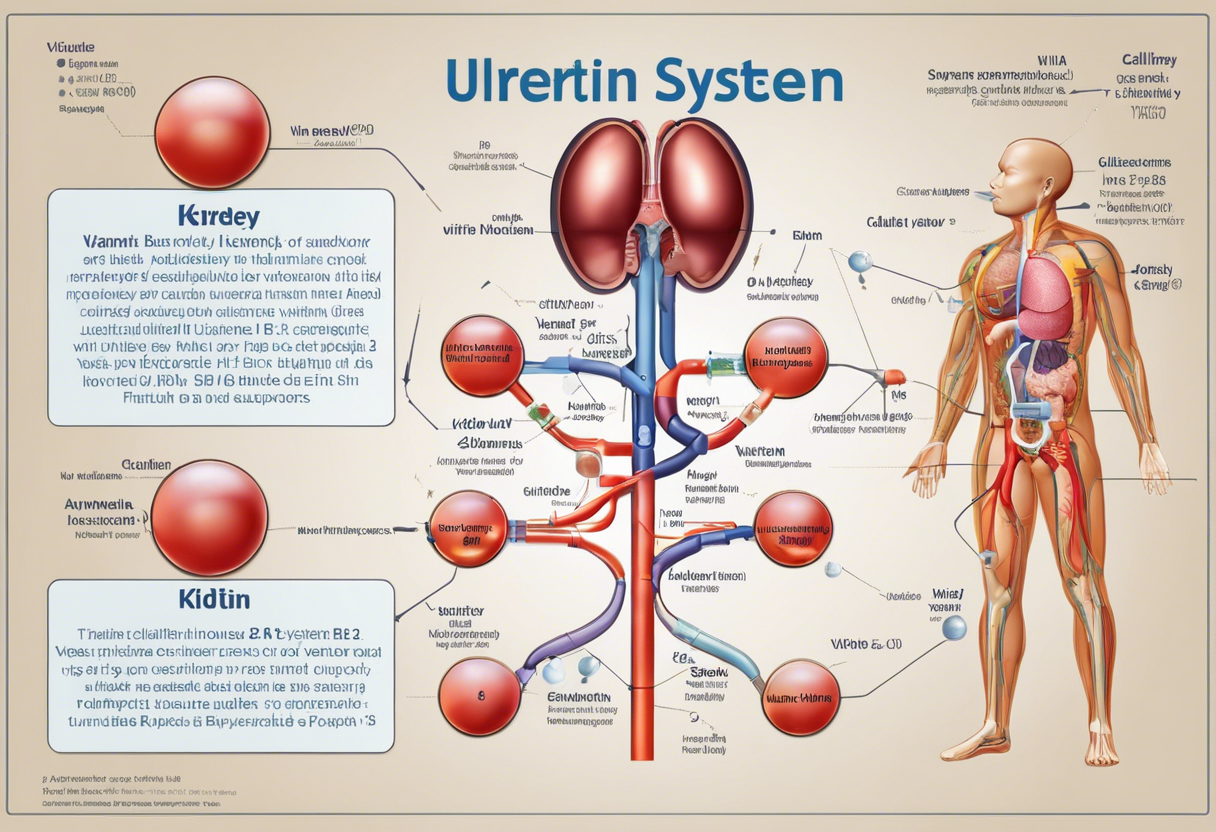
Vitamin B7, more commonly known as biotin, is a water-soluble vitamin part of the B-complex group, crucial for the metabolism of fats, carbohydrates, and proteins. Its role encompasses not just the conversion of food into energy but also maintaining skin, hair, and mucous membrane health, which is vital for a properly functioning urinary tract. In the context of urinary health, biotin's benefits encompass various aspects.
Firstly, biotin contributes to the cellular health of the urinary tract lining. The cells in the bladder and urethra rely on proper vitamin B7 levels to function correctly, ensuring a barrier against pathogens. Furthermore, biotin supports nerve function, a critical component considering the nerves' role in bladder control and the signaling necessary for urination.
Biotin deficiency, although rare, can lead to several health issues, some with urinary implications. Symptoms can include reduced immune system efficacy, which is paramount for preventing urinary tract infections. Moreover, considering the role of vitamins in promoting healthy cognitive function, a lack of biotin may affect bladder control due to cognitive impairments.
For individuals with specific conditions such as prostatitis, understanding prostatitis and strengthening prostate health with vitamins and supplements is essential. While research directly linking biotin and prostate health is limited, the anti-inflammatory properties of B vitamins, in general, suggest potential benefits in reducing prostate inflammation.
Additionally, for consumers interested in overall wellness, products like multi-vitamin gummies and magic invisible pore makeup primers that contain vitamins A, C, and E—known for skin and immune support—often also include biotin. These serve as approachable means to introduce necessary vitamins for urinary and wider health benefits.
It should be noted that while biotin plays a role in urinary health, excess intake, especially from supplements, may affect medical test results or interact with medications. Always consult a healthcare provider before starting any new vitamin regimen, ensuring that it contributes to rather than detracts from one’s overall health objectives.
The Role of Folate (Vitamin B9) in Urinary Health and Disease Prevention

Folate, also known as Vitamin B9, is a water-soluble vitamin that plays a vital part in cell growth and the formation of DNA. An adequate intake of folate is crucial for maintaining overall health, including the urinary system. Folate's involvement in DNA synthesis and repair is particularly significant in the rapid cell division and regeneration required for a healthy urinary tract lining.
-
Folate contributes to the reduction of elevated homocysteine levels in the body, which is associated with a lower risk of urinary tract issues.
-
Adequate folate levels are essential for pregnant women to prevent the development of birth defects of the baby's brain and spine.
-
It supports the proper function of the kidneys, which are fundamental in filtering and eliminating waste from the body.
Furthermore, folate's role extends to disease prevention:
-
By decreasing homocysteine levels, folate may play a role in reducing the risk of kidney disease and subsequent urinary complications.
-
It has been linked to a potential reduction in the risk of bladder cancer due to its role in maintaining the integrity of DNA.
Research into folate's impact on prostate health has suggested a protective effect against prostatitis, an inflammation of the prostate gland that can affect urinary function, particularly in men. Ensuring adequate folate intake could be part of a dietary approach for strengthening prostate health, along with vitamins and supplements.
Consumption of a balanced diet rich in folate from vegetables, fruits, and legumes, or the use of multi-vitamin gummies that include Vitamin B9, is recommended for maintaining urinary health. Additionally, specialized formulations targeted at brain health, immune support, and even cosmetic products like magic invisible pore makeup primer—which often contain a blend of vitamins A, C, and E, known for optimum skin health—may also fortify folate levels in the body. Understanding how to balance these vitamins through diet and supplemental means is significant for preventing urinary tract complications and supporting the body's overall well-being.
Vitamin B12: Its Indispensable Role in Maintaining a Healthy Urinary System
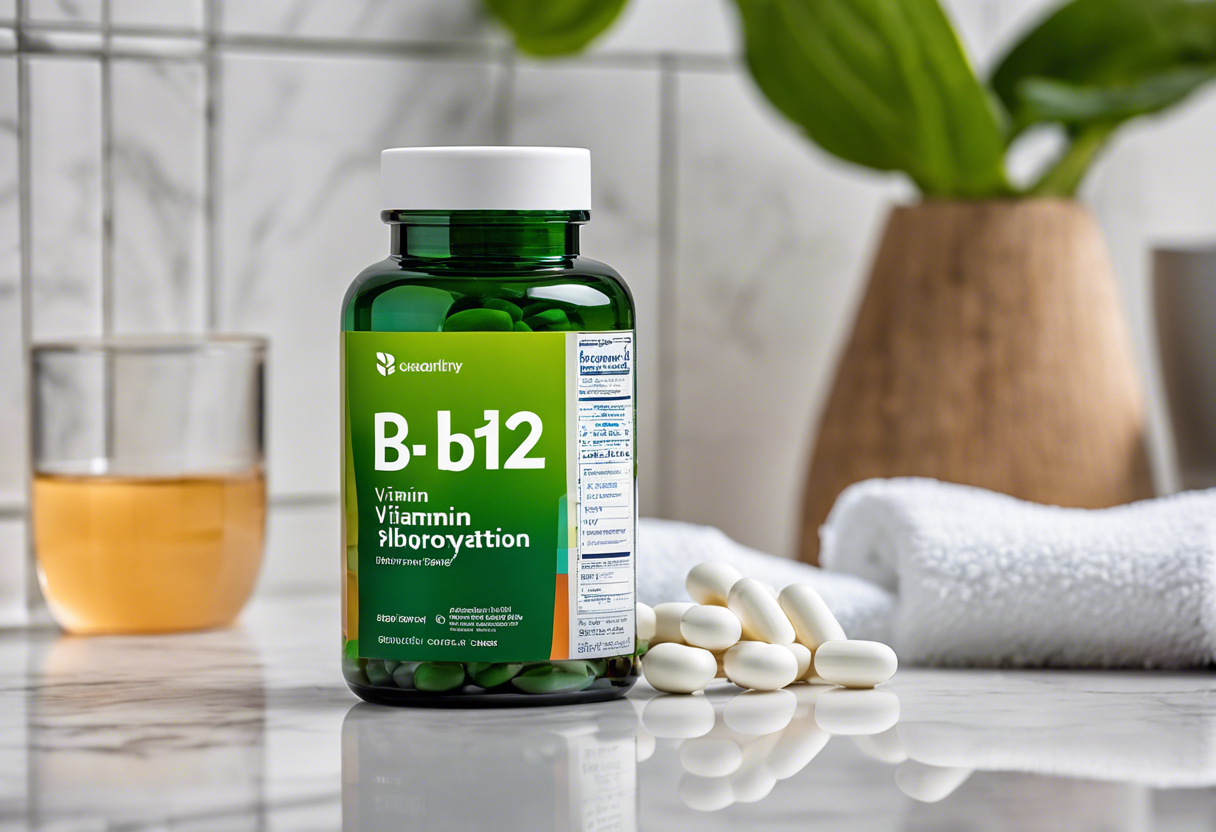
Vitamin B12 is a crucial nutrient that plays an array of roles in the human body, from promoting healthy cognitive function to offering immune support. When it comes to urinary health, the importance of Vitamin B12 cannot be overlooked. It is involved in ensuring proper nerve functioning; therefore, its deficiency can lead to a range of urinary tract problems. This is because the nerves that control bladder function may not work optimally when B12 levels are low, leading to urinary incontinence or retention.
Research further suggests that adequate levels of Vitamin B12 are necessary for DNA synthesis and repair, essential processes for the healthy regeneration of the lining of the bladder and urethra. This helps in maintaining the integrity of the urinary tract and aids in protecting against infections and other disorders.
The role of Vitamin B12 in metabolic processes means it helps to regulate homocysteine levels in the body. High homocysteine levels have been linked to urinary tract issues and kidney disorders. By maintaining adequate levels of this vitamin, individuals can potentially reduce the risk of developing such conditions.
Furthermore, for men, understanding prostatitis and strengthening prostate health with vitamins and supplements is essential for urinary well-being. B12, being part of this nutritional approach, can aid in maintaining a healthy prostate, which is closely linked to a well-functioning urinary system.
Multi-vitamin gummies that contain Vitamin B12, alongside other B vitamins and choline, can be a convenient way to ensure the daily intake of these vital nutrients. Brain health is also entwined with overall physiological health, including the urinary system; thus incorporating a dietary supplement that also contains vitamins A, C, and E – like the magic invisible pore makeup primer that promises optimum skin health – can offer comprehensive benefits.
Incorporating foods rich in Vitamin B12 or considering supplements, after consultation with a healthcare provider, can be an important step in promoting a robust urinary system. Given that B12 is predominantly found in animal products, vegetarians and vegans may need to pay extra attention to their intake of this vital nutrient, ensuring that their urinary and overall health remains in check.
Understanding Choline: The Lesser-Known Nutrient Essential for Urinary Health

While much emphasis is placed on the role of vitamins in promoting healthy cognitive function and supporting the immune system, the significance of choline—a vital but often overlooked nutrient—is crucial in maintaining urinary health. Found naturally in some foods and available in supplements like multi-vitamin gummies, choline is an essential component for brain health. Yet, its influence extends to the urinary tract, where it plays a vital role in cell membrane integrity and signaling.
Choline's importance in urinary health can be attributed to various factors:
-
Cell Health: Choline contributes to the structural integrity of cell membranes, which is vital for the health of the urinary tract lining.
-
Nervous System Support: Optimal choline levels are necessary for the proper function of the nervous system that controls bladder function.
-
Inflammation Reduction: Choline may help reduce inflammation in the urinary tract, which is beneficial for conditions like prostatitis, and contributes to overall prostate health.
Furthermore, understanding prostatitis and strengthening prostate health with vitamins and supplements that contain choline can enhance the body's response to this condition. Integrating a balanced diet with a specialized supplement regimen could offer substantial benefits for those specifically focused on maintaining urinary tract health.
Additionally, the diverse benefits of choline extend to skin health. For instance, the magic invisible pore makeup primer that promises to make pores disappear and face oil control often contains vitamins A, C, and E for optimum skin health. Such products illustrate the broad scope of choline's utility, from its integral role in the synthesis of critical components to ensuring cell structure and messaging that directly influence urinary and overall physiological functions.
For individuals looking to support their urinary and overall wellness, considering choline intake, whether through diet or supplements, is an essential aspect of a holistic health strategy.
Synergy of B Vitamins and Choline: Combating Urinary Disorders

Urinary disorders encompass a range of conditions, some relatively benign, like urinary incontinence, and others more severe, such as prostatitis. The management of these disorders may benefit from a holistic approach, including dietary supplementation. Specifically, B vitamins and choline play a significant role in maintaining urinary health.
-
B Vitamins: The B vitamin complex is critical for metabolic processes, energy production, and the maintenance of a healthy nervous system. Within the realm of urinary health, these vitamins are indispensable. Vitamin B6, for instance, is known to help regulate hormones and reduce inflammation, which is particularly favorable for those struggling with urinary tract infections (UTIs) or prostatitis.
-
Choline: Often grouped with the B vitamins due to its similar functions, choline is essential for brain health and the synthesis of neurotransmitters. It’s thought to provide immune support, which can be beneficial when fighting infections of the urinary tract. Furthermore, choline works to support the structural integrity and signaling functions of cell membranes, which can help in preventing bladder dysfunction.
Combining B vitamins with choline may offer a synergistic effect that can be particularly potent in combating urinary disorders. By addressing inflammation, hormone regulation, and immune function, this combination can be instrumental in understanding prostatitis and strengthening prostate health with vitamins and supplements. It's also been suggested that the anti-inflammatory properties of B vitamins, along with the cellular support provided by choline, can be an effective approach to bladder health.
Multi-vitamin gummies often contain a blend of these nutrients, making them a convenient way to obtain the necessary daily amounts. For individuals aiming for both urinary and cognitive function improvement, products such as the magic invisible pore makeup primer not only aim to reduce visible pores and control face oil but are also infused with vitamins A, C, and E, which may contribute to optimum skin and overall health.
Thus, considering the beneficial interactions between B vitamins and choline, there may be positive implications for both treating current urinary disorders and preventing future episodes. It's imperative for healthcare professionals to explore these nutrients as part of a comprehensive treatment plan for those suffering from urological conditions.
Nutritional Sources of B Vitamins and Choline for Optimal Urinary Health

The role of vitamins in promoting healthy cognitive function extends to the urinary tract, where B vitamins and choline play a crucial part. Ensuring adequate intake of these nutrients is central to maintaining urinary health.
B Vitamins: Diverse dietary sources can provide the range of B vitamins required for optimal health.
-
Vitamin B1 (Thiamine): Found in whole grains, meats, and fish, thiamine supports nervous system health, which is integral to bladder control.
-
Vitamin B2 (Riboflavin): Dairy products, eggs, lean meats, and green vegetables like spinach are rich in riboflavin, essential for cellular growth and function.
-
Vitamin B3 (Niacin): To aid in the proper functioning of the urinary tract lining, one may consume chicken, tuna, lentils, and peanuts which are high in niacin.
-
Vitamin B5 (Pantothenic Acid): Avocado, yogurt, and chicken liver are excellent sources for boosting the body’s resilience, including the health of the bladder.
-
Vitamin B6 (Pyridoxine): Bananas, carrots, and chicken, rich in pyridoxine, support immune function and the regulation of inflammatory processes that can affect the urinary tract.
-
Vitamin B7 (Biotin): Eggs, nuts, and soybeans provide biotin, which, in tandem with other B vitamins, supports a robust urinary system.
-
Vitamin B9 (Folate): Leafy greens, legumes, and fortified grains aid in tissue growth and cell function within the urinary system.
-
Vitamin B12 (Cobalamin): Animal products such as meat, fish, and dairy, rich in cobalamin, are necessary for red blood cell formation and an efficient nervous system, both vital for urinary health.
Choline: An essential nutrient for brain health and cell membrane integrity, choline is found in the following sources:
-
Eggs: Notably the yolks, are a powerhouse of choline.
-
Lean meats: Both beef and chicken liver are rich in choline, which is essential for prostate health.
-
Fish: Fatty fish like salmon provide not only choline but also omega-3 fatty acids for overall health.
-
Dairy products: Milk, paneer, and other dairy items offer choline along with calcium and protein.
-
Vegetables: Particularly cruciferous ones like broccoli and Brussels sprouts.
For individuals seeking convenience, multi-vitamin gummies can provide a spectrum of these vital nutrients. The magic invisible pore makeup primer, a novel cosmetic innovation, not only facilitates smoother makeup application but is also imbued with Vitamins A, C, and E, promoting optimum skin health which can indirectly support the body's natural defenses, including the urinary tract. Through a balanced diet and possibly supplementation, one can bolster immune support and take proactive steps in understanding prostatitis, strengthening prostate health with vitamins and supplements.
Supplementation for Urinary Health: When Diet Isn't Enough

While a balanced diet is foundational for maintaining urinary health, certain conditions may necessitate supplementation. The body requires a comprehensive array of nutrients to support the intricate systems involved in urinary functions, and the role of vitamins, such as B Vitamins and Choline, cannot be overstated.
B Vitamins, particularly B6 and B12, are known to aid in breaking down homocysteine, an amino acid that can damage the linings of the arteries when in excess. Their regulation of homocysteine levels is vital for avoiding potential urinary complications. Choline, on the other hand, supports the structural integrity of cellular membranes, thereby contributing to effective urinary tract health.
For individuals unable to meet their nutritional needs through diet alone, multi vitamin gummies can serve as a convenient alternative. These supplements often include a range of necessary vitamins that contribute to brain health and immune support, such as Vitamin A, Vitamin C, and Vitamin E. They are especially useful for those who have dietary restrictions or absorption issues.
Despite the potential benefits, the choice to use supplements should be informed and intentional:
-
Understanding Prostatitis: In regards to prostate health, supplementation may be considered for those seeking to strengthen their prostate health with vitamins and supplements.
-
Skin and Urinary Health Connection: Products like a magic invisible pore makeup primer which makes pores disappear and controls face oil can often contain vitamins A, C, and E. These vitamins not only aid in maintaining optimum skin health but can also contribute to maintaining the body's natural elimination processes, including urinary health.
-
Holistic Approach: When opting for supplementation, it's imperative to seek products that are backed by research and tailored to support specific health needs.
It is critical, however, to consult healthcare professionals before incorporating any new supplements into one's regimen. They can provide guidance on appropriate supplementation based on individual health status and nutritional needs, ensuring that the critical role of B Vitamins and Choline in urinary health is effectively supported when diet isn't enough.
Lifestyle and Dietary Changes to Support Urinary Health

Maintaining urinary health is a multifaceted approach that depends largely on lifestyle and dietary habits. To enhance the role of vitamins in promoting healthy cognitive function and augmenting the beneficial effects of B vitamins and choline, individuals are encouraged to adopt several key practices.
First, incorporating a nutrient-rich diet that supports brain health and immune support should be a priority. Foods that are high in B vitamins, such as whole grains, lean meats, eggs, and dark leafy vegetables, help in maintaining proper nerve function and are essential for metabolic processes.
Secondly, staying hydrated is critical for urinary health. Adequate water intake ensures the urinary tract is flushed regularly, reducing the risk of infections and kidney stones. Limiting caffeinated and alcoholic beverages, which can irritate the bladder, is also advisable.
In terms of supplements, opting for multi-vitamin gummies can be a convenient way to complement dietary intake, especially for those who find swallowing tablets challenging. When choosing supplements, select ones with comprehensive immune support and the recommended daily values of B vitamins and choline.
Furthermore, understanding prostatitis and strengthening prostate health with vitamins and supplements can be crucial for men. Magnesium, vitamin D, and antioxidants like vitamins A, C, and E, which are sometimes found in magic invisible pore makeup primers for optimal skin health, can also benefit the prostate.
Lastly, reducing stress levels through exercise, meditation, or other relaxation techniques can have a positive impact on urinary health. Stress can affect the bladder and exacerbate conditions like urinary incontinacy and overactive bladder.
By adhering to these guidelines, individuals can significantly contribute to maintaining a healthy urinary system, taking preventative measures against common urinary tract concerns.
Conclusion: Integrating B Vitamins and Choline into a Healthy Urinary Health Regimen

For a robust urinary system, the strategic integration of B vitamins and choline into daily nutrition is paramount. B vitamins, namely B6, B9 (folic acid), and B12, are critical to maintaining urinary tract health, each one playing a unique role in processes such as DNA replication, repair, and cellular function. These micronutrients, in tandem with choline, provide a shield against urinary infections and diseases, including the understanding of prostatitis and its management.
Incorporating these vitamins through a balanced diet rich in whole grains, greens, and lean proteins, or through a meticulously chosen supplement, like multi vitamin gummies, ensures that the body has a steady supply of these essential nutrients. This proactive approach harmonizes with the role of vitamins in promoting healthy cognitive function and general well-being.
For those seeking targeted support, supplements that focus on immune support, brain health, and especially those strengthening prostate health with vitamins and supplements, can be integral to a health regimen. Products like the magic invisible pore makeup primer, which is engineered to make pores disappear while offering face oil control and is usually rich in vitamins A, C, and E, represent a multifaceted approach to skin and overall health.
Individuals should consult healthcare professionals to tailor the right balance and dosage of B vitamins and choline, fitting their specific health needs and ensuring the optimal functioning of their urinary tract. By prioritizing bladder and kidney health through these vital nutrients, one can secure a foundation of urinary wellness that supports overall bodily health.





Leave a comment